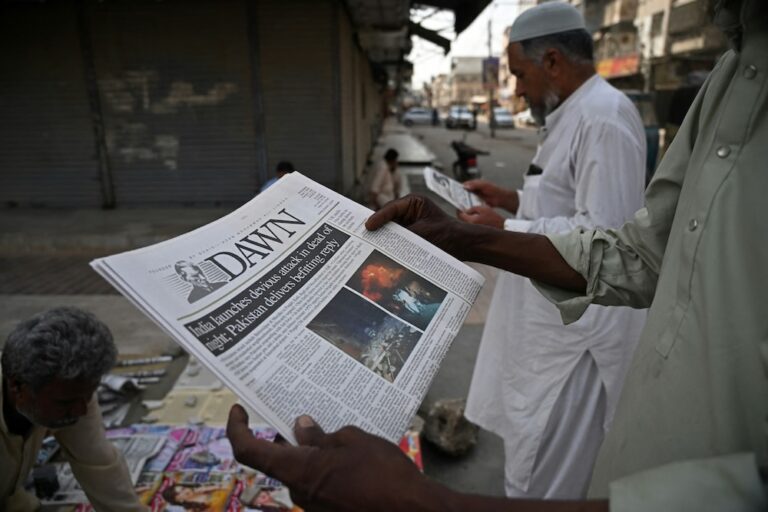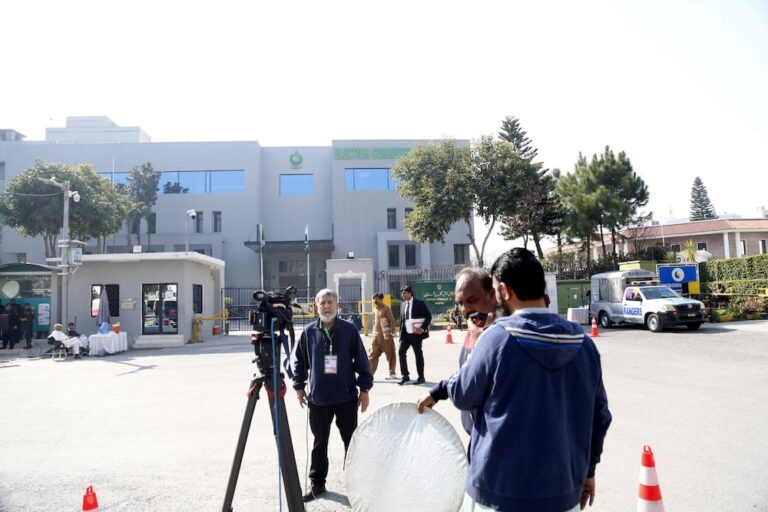While Pakistan has been censoring online content for a long time, the telecommunication authority's focus has tended toward pornography and blasphemy, not political scandal.
(EFF/IFEX) – 16 August 2012 – Just when we thought censorship in Pakistan couldn’t get any worse, it has. After our joint effort with numerous Pakistani and international organizations succeeded in putting plans for a national filter on hold, and Pakistan relented after a brief experiment with blocking Twitter, we thought we could turn our focus elsewhere for a little while.
We were wrong.
Last Saturday, news emerged that the Pakistan Telecommunication Authority (PTA) had ordered all of the country’s Internet Service Providers (ISPs) to block fifteen “scandalous” websites, including one hosting an audio recording of a “sensual” conversation between two parliamentarians and another containing video of a press conference in which a female television anchor claimed that she and a government employee are secretly married and have a son.
While Pakistan has been censoring online content for a long time, the PTA’s focus has tended toward pornography and blasphemy, not political scandal. In an article from Pakistani publication The News, Wahajus Siraj, Convener of the ISP Association of Pakistan, suggested that the latest censorship was for political gain.
In addition to political intrigue, Pakistani digital rights organization Bytes4All reports that the government froze mobile phone networks in the province of Balochistan on August 14, Pakistan’s Independence Day. According to a report from the OpenNet Initiative, Balochistan seems to be the primary target of government censors, which have ordered the blocking of Balochi news, independence and culture websites. A secondary effect of the censorship is that many such sites have closed down, purposeless without a native audience.
In response to the latest crackdown, Bytes4All wrote that the ban on communications has been “hugely protested by the citizens in the province and can eventually end up further widening the gulf of trust deficit, instigating more violence and rebellion among citizens.”
EFF is alarmed to see Pakistan move from its flirtation with stifling freedom of expression on the Internet to a full-blown affair. Government mandated filtering of pornographic or blasphemous material is highly problematic for freedom of expression, especially because of the high incidence of false positives, but Mubarak-style cutoffs of communications in regions of unrest and censorship of reporting on political scandal are an order of magnitude more repressive. We may not be surprised, but we are bitterly disappointed to say that we will have to keep a close eye on this situation as it develops.


